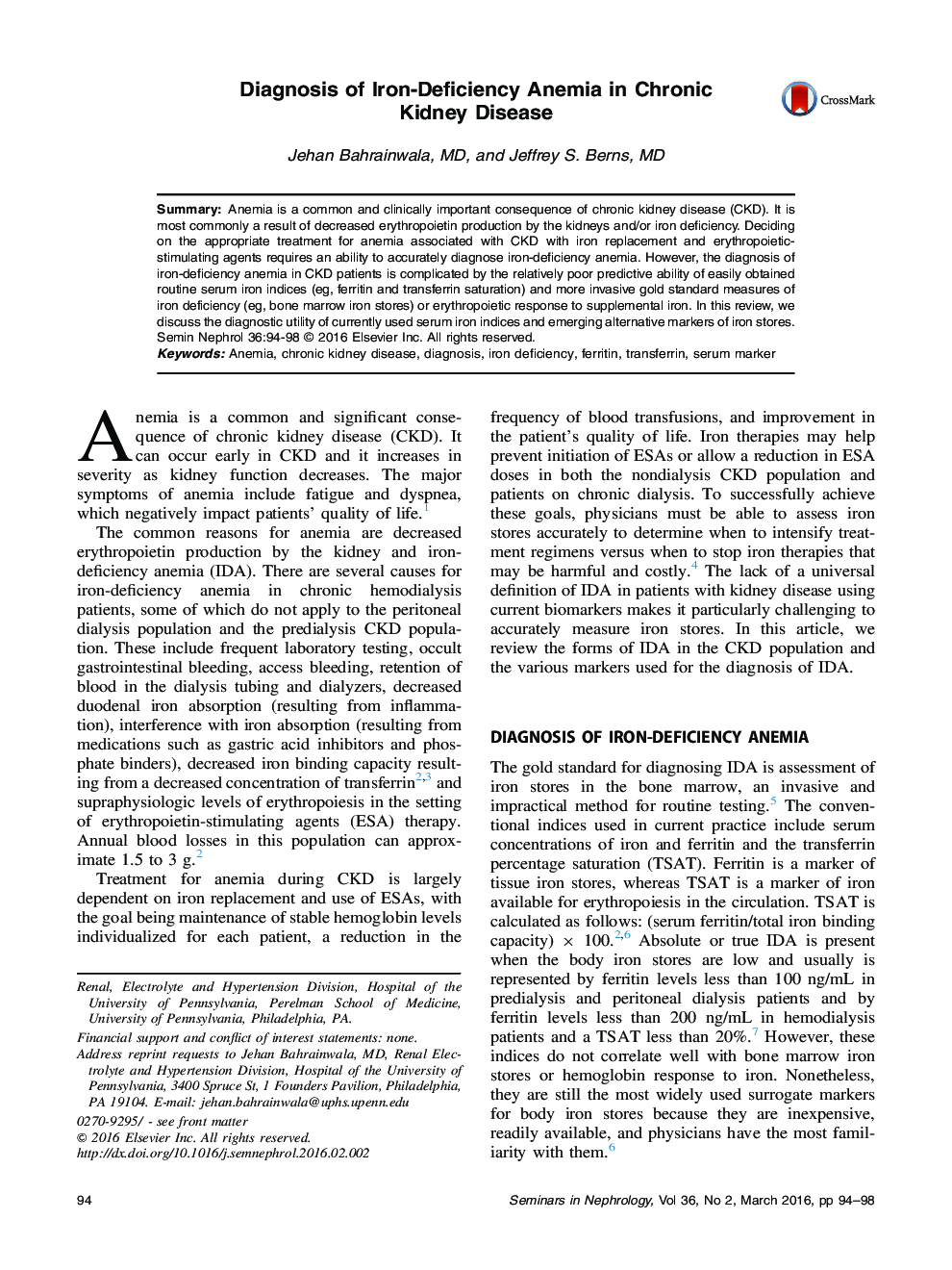| Article ID | Journal | Published Year | Pages | File Type |
|---|---|---|---|---|
| 3896303 | Seminars in Nephrology | 2016 | 5 Pages |
SummaryAnemia is a common and clinically important consequence of chronic kidney disease (CKD). It is most commonly a result of decreased erythropoietin production by the kidneys and/or iron deficiency. Deciding on the appropriate treatment for anemia associated with CKD with iron replacement and erythropoietic-stimulating agents requires an ability to accurately diagnose iron-deficiency anemia. However, the diagnosis of iron-deficiency anemia in CKD patients is complicated by the relatively poor predictive ability of easily obtained routine serum iron indices (eg, ferritin and transferrin saturation) and more invasive gold standard measures of iron deficiency (eg, bone marrow iron stores) or erythropoietic response to supplemental iron. In this review, we discuss the diagnostic utility of currently used serum iron indices and emerging alternative markers of iron stores.
